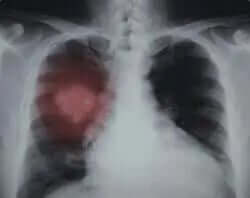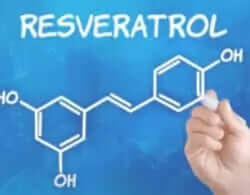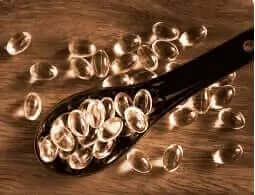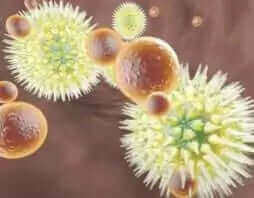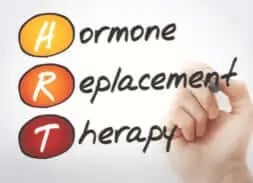Resveratrol and Curcumin: A Powerful Combination for Lung Cancer Prevention
Resveratrol, the celebrated polyphenol compound found in red wine and grapes, has captured the attention of researchers worldwide for its remarkable potential in cancer prevention. When combined with curcumin, the active ingredient in turmeric, this dynamic duo demonstrates enhanced effectiveness against lung carcinoma, offering new hope for those seeking natural approaches to cancer prevention and treatment.
Understanding Resveratrol's Role in Cancer Research
For decades, scientists have investigated resveratrol's anticancer properties across various cancer types. This natural compound, technically known as 3,5,4'-trihydroxy-trans-stilbene, exhibits powerful antioxidant and anti-inflammatory effects that make it particularly valuable in oncological research. Recent studies have revealed that when resveratrol works alongside curcumin, the results exceed what either compound achieves independently.
Groundbreaking Research from Panjab University
A pivotal study from the Department of Biophysics at Panjab University in Chandigarh, India, published in Ultrastruct Pathology (May 2012), has shed new light on the synergistic effects of resveratrol and curcumin. This comprehensive research examined how these two natural compounds work together to combat lung carcinoma in animal models.
Study Methodology and Dosage Protocol
The research team administered carefully measured doses to test subjects over a 22-week period. Animals received oral treatments through their drinking water, with curcumin dosed at 60 mg/kg body weight and resveratrol at 5.7 µg/mL, administered three times weekly. This consistent, long-term approach allowed researchers to observe the compounds' cumulative effects on lung cancer progression.
Why Resveratrol Shows Promise Against Cancer
Resveratrol operates through multiple mechanisms to combat cancer cells. It triggers apoptosis (programmed cell death) in malignant cells while protecting healthy tissues. The compound also inhibits tumor angiogenesis, essentially cutting off the blood supply that tumors need to grow and spread. Additionally, resveratrol modulates various signaling pathways involved in cancer development, including NF-κB, STAT3, and PI3K/AKT pathways.
The Science Behind Synergy
When resveratrol combines with curcumin, their individual cancer-fighting properties amplify significantly. This synergistic relationship occurs because:
- Enhanced Bioavailability: Each compound helps improve the absorption and effectiveness of the other
- Complementary Mechanisms: While resveratrol excels at preventing DNA damage, curcumin reduces inflammation and blocks cancer cell proliferation
- Broader Spectrum Activity: Together, they target multiple cancer hallmarks simultaneously
- Reduced Side Effects: Lower doses of each compound can achieve better results when combined
Maximizing Resveratrol Absorption: The Importance of Micronization
Not all resveratrol supplements deliver equal benefits. The key to effectiveness lies in bioavailability, which depends heavily on particle size. Micronized resveratrol, with particles measuring 1.5 microns or smaller, mirrors the form used in most successful clinical studies. This ultra-fine particle size ensures optimal absorption through the intestinal wall, allowing more of the active compound to reach target tissues.
Advanced Delivery Systems
Modern resveratrol formulations incorporate innovative delivery technologies to enhance absorption further. These include:
- Nitrogen Bubble Technology: Protects resveratrol from oxidation while improving solubility
- Emulsification with Tween: Creates a stable suspension that crosses cellular membranes more efficiently
- Liposomal Encapsulation: Shields the compound from digestive enzymes while facilitating cellular uptake
- Time-Release Formulations: Maintain steady blood levels throughout the day
Curcumin: The Golden Partner to Resveratrol
Curcumin brings its own impressive arsenal of health benefits to this powerful combination. This vibrant yellow compound has been used in traditional medicine for thousands of years, and modern science confirms its therapeutic potential. Like resveratrol, curcumin faces bioavailability challenges in its natural form, making advanced formulations crucial for therapeutic effectiveness.
Revolutionary Curcumin Formulations
Recent technological advances have produced curcumin supplements with absorption rates up to 277 times greater than standard turmeric powder. These enhanced formulations utilize various strategies:
- Piperine Addition: Black pepper extract dramatically increases curcumin absorption
- Phospholipid Complexes: Bind curcumin to fat molecules for improved cellular delivery
- Nanoparticle Technology: Reduces particle size to enhance bioavailability
- Water-Soluble Formulations: Overcome curcumin's natural hydrophobic properties
Practical Applications: How to Incorporate Resveratrol and Curcumin
Understanding the optimal ways to include these compounds in your wellness routine can maximize their potential benefits. Here are evidence-based recommendations:
Dietary Sources of Resveratrol
While supplements provide concentrated doses, resveratrol occurs naturally in various foods:
| Food Source | Resveratrol Content (mg per serving) |
|---|---|
| Red Grapes (1 cup) | 0.24-1.25 |
| Red Wine (5 oz) | 0.20-2.00 |
| Peanuts (1 oz) | 0.01-0.26 |
| Dark Chocolate (1 oz) | 0.035-0.185 |
| Blueberries (1 cup) | 0.01-0.02 |
Incorporating Curcumin Through Diet
Turmeric, curcumin's primary source, can be easily added to daily meals:
- Golden Milk: Traditional turmeric latte with black pepper and healthy fats
- Curry Dishes: Authentic recipes naturally combine turmeric with other beneficial spices
- Smoothies: Add fresh turmeric root or powder to morning beverages
- Roasted Vegetables: Season with turmeric, black pepper, and olive oil
The Future of Resveratrol and Curcumin Research
Ongoing studies continue to explore the potential of resveratrol and curcumin in various health applications. Researchers are investigating their effects on:
- Cardiovascular health and atherosclerosis prevention
- Neurodegenerative diseases like Alzheimer's and Parkinson's
- Metabolic syndrome and diabetes management
- Age-related cellular damage and longevity
- Inflammatory conditions including arthritis and IBD
Emerging Research Areas
Scientists are particularly excited about several new directions in resveratrol and curcumin research:
- Epigenetic Modulation: How these compounds influence gene expression
- Microbiome Interactions: Their effects on beneficial gut bacteria
- Combination Therapies: Pairing with conventional treatments for enhanced outcomes
- Personalized Medicine: Tailoring doses based on individual genetic profiles
Safety Considerations and Best Practices
While resveratrol and curcumin are generally well-tolerated natural compounds, responsible use involves understanding potential interactions and appropriate dosing. Most studies showing positive results use specific doses and formulations, making quality and consistency crucial factors in supplement selection.
Important Considerations
- Consult healthcare providers before starting any new supplement regimen
- Choose products from reputable manufacturers with third-party testing
- Start with lower doses and gradually increase as tolerated
- Take with food to minimize potential digestive discomfort
- Be aware of potential interactions with medications, especially blood thinners
Making Informed Choices: Selecting Quality Supplements
The supplement market offers numerous resveratrol and curcumin products, but quality varies significantly. When evaluating options, consider these factors:
- Bioavailability Enhancement: Look for micronized or specially formulated versions
- Purity and Potency: Verify third-party testing results
- Manufacturing Standards: Choose products made in GMP-certified facilities
- Stability and Packaging: Ensure protection from light and oxidation
- Clinical Evidence: Prefer formulations backed by research
Conclusion: A Promising Path Forward
The combination of resveratrol and curcumin represents a promising avenue in natural health and cancer prevention strategies. As research continues to unveil their synergistic potential, these compounds offer hope for those seeking evidence-based natural approaches to health optimization. By understanding the science behind their effectiveness and choosing high-quality formulations, individuals can harness the power of these remarkable natural compounds as part of a comprehensive wellness strategy.
Remember that while resveratrol and curcumin show tremendous promise, they work best as part of a holistic approach including proper nutrition, regular exercise, stress management, and regular medical care. The future of preventive health may well include these powerful plant compounds, offering natural solutions backed by rigorous scientific research.
Frequently Asked Questions About Resveratrol and Curcumin
What is the optimal dosage of resveratrol for health benefits?
Research studies typically use resveratrol doses ranging from 150-500mg daily, though some clinical trials have employed higher amounts. The optimal dose depends on individual factors including age, health status, and specific health goals. Micronized formulations with enhanced bioavailability may require lower doses to achieve similar effects. Always start with the manufacturer's recommended dose and consult with a healthcare provider for personalized guidance.
Can I get enough resveratrol from red wine alone?
While red wine contains resveratrol, the amounts are relatively modest, typically 0.2-2mg per 5-ounce glass. To achieve the doses used in most research studies (150-500mg), you would need to consume impractical and unhealthy amounts of wine. Additionally, alcohol's negative effects would far outweigh any potential benefits. For therapeutic doses, high-quality resveratrol supplements offer a more practical and healthier approach.
How long does it take to see results from resveratrol and curcumin supplementation?
The timeline for experiencing benefits varies depending on individual factors and health goals. Some people report improved energy and well-being within 2-4 weeks, while more significant changes in biomarkers or chronic conditions may take 8-12 weeks or longer. The Panjab University study mentioned used a 22-week protocol, suggesting that patience and consistency are key. Regular use over several months typically yields the best results.
Are there any side effects from taking resveratrol and curcumin together?
Both resveratrol and curcumin are generally well-tolerated natural compounds. Some individuals may experience mild digestive upset, especially when starting supplementation. Taking them with food often minimizes any discomfort. Both compounds have mild blood-thinning properties, so those on anticoagulant medications should consult their healthcare provider. The combination is typically safer than either compound alone at higher doses, as synergy allows for lower individual doses.
What makes micronized resveratrol superior to regular resveratrol?
Micronization reduces resveratrol particles to 1.5 microns or smaller, dramatically improving absorption through the intestinal wall. Regular resveratrol has poor bioavailability due to its crystalline structure and low water solubility. Micronized versions can be 2-5 times more bioavailable, meaning more of the active compound reaches your bloodstream and tissues. This enhanced absorption translates to better results with lower doses.
Should I take resveratrol and curcumin with or without food?
Taking these supplements with food, especially meals containing healthy fats, significantly enhances absorption. Curcumin is fat-soluble and benefits greatly from being consumed with oils or fatty foods. Resveratrol absorption also improves with food, and taking it with meals reduces the likelihood of stomach upset. For optimal results, take your supplements with a meal containing sources of healthy fats like avocado, nuts, or olive oil.
Can resveratrol and curcumin replace conventional cancer treatments?
While research shows promising results for resveratrol and curcumin in cancer prevention and as adjuvant therapies, they should never replace conventional cancer treatments. These natural compounds work best as part of an integrative approach, potentially enhancing the effectiveness of standard treatments while reducing side effects. Always work with oncology professionals who can guide you on safely incorporating these supplements into your treatment plan.
What time of day is best for taking resveratrol supplements?
Research suggests that taking resveratrol in the morning may align best with your body's natural circadian rhythms. Some studies indicate that resveratrol can influence clock genes and metabolism, making morning supplementation potentially more beneficial. However, if you experience any energizing effects that interfere with sleep, morning dosing is definitely preferable. Consistency in timing is more important than the specific time chosen.
How do I know if my resveratrol supplement is high quality?
Quality resveratrol supplements should provide third-party testing certificates verifying purity and potency. Look for products that specify trans-resveratrol content (the active form) rather than just "resveratrol." Micronized formulations with particle sizes under 1.5 microns offer superior absorption. Reputable manufacturers will use dark bottles to protect from light degradation and may include absorption enhancers like piperine or specialized delivery systems.
Can children and elderly individuals safely take resveratrol and curcumin?
Both compounds have good safety profiles, but dosing should be adjusted for age and body weight. Elderly individuals often benefit from these supplements due to their anti-inflammatory and neuroprotective properties. For children, consultation with a pediatrician is essential, as most research has focused on adult populations. When approved, start with much lower doses and monitor closely. The natural food sources of these compounds are generally safe for all ages.
Scientific References:
- Phytotherapy Research: Resveratrol and Cancer Studies
- Restorative Medicine Journal: Combination Therapy Research
- Ultrastructural Pathology: Lung Carcinoma Study
- Drug and Chemical Toxicology: Synergistic Effects Research

